If you want to immerse yourself in
the history of France and England then a visit to the mighty
Royal Fortress at Chinon is a good place to start your journey. Its
strategic position becomes obvious long before you actually enter
the town, sitting as it does on a rocky outcrop overlooking the
Vienne river. Chinon sits at the meeting point of three French
provinces Anjou, Poitou and Touraine and as such has been an
important defensive location since Gallo-Roman times. The Counts of
Blois erected the first real castle on the site in the 10th
century which they held until 1044 when they were overthrown by
their bitter rivals the Counts of Anjou.
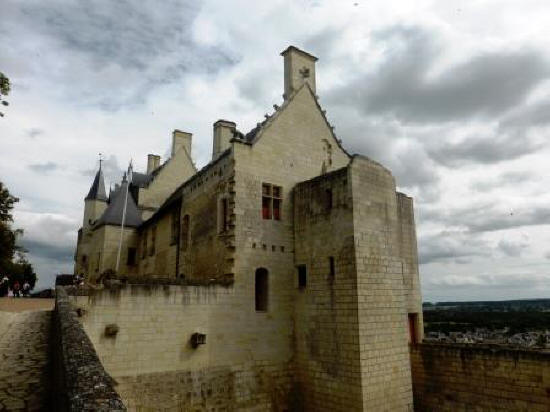
It
would not be until 1154 that it began to take on part of its now
famous fortress appearance, when it became the main residence of
Henry II, the King of England who was also then Count of Anjou (Angevin
King). It reigned supreme as the home of the Plantagenet king and
his wife Aliénor (Eleanor) d'Aquitaine until 1189 when the king died
grieving over the betrayal of his son Richard (Lionheart). In
1205,after an eight month siege, Philip-Auguste conquered Chinon and
the province of Anjou was annexed to France. It continued to serve
as a royal residence throughout the following centuries.
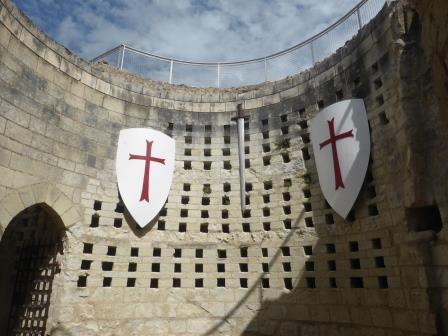
The
chateau has very strong links to the Knights Templar, a military
order of the Roman Catholic Church, formed to protect Christians in
the Holy Land during the early Crusades and now vey much the stuff
of legends. It was here that the Grand Masters of the order were
imprisoned in 1308 before being put to death in Paris by order of
the Vatican. They also decreed that the order be disbanded. Much of
what we now know of their trial was uncovered with the discovery of
what is now known as ‘Chinon parchment’ in the Vatican archives. You
can trace some of the history of the Templars through an interactive
exhibit and trail laid out in the park and towers of the fortress.
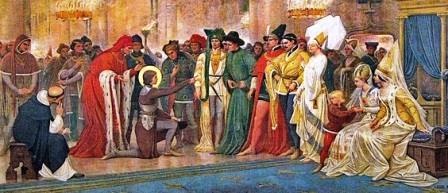
Perhaps the most famous event at the chateau took place in 1429
during the Hundred Years’ War when Joan of Arc met with the
indecisive and somewhat cowardly dauphin Charles VII. He had
installed a small court there a couple of years earlier, taking
refuge from the Burgundians and the English. Joan persuaded Charles
to stand up against the English and reclaim his throne and was,
eventually, given leave to form an army to change the fortunes of
the French and to set up her own tragic destiny.
Fortress Chinon
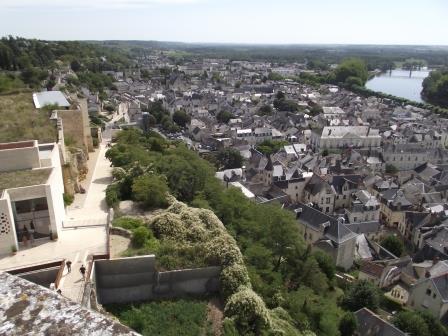
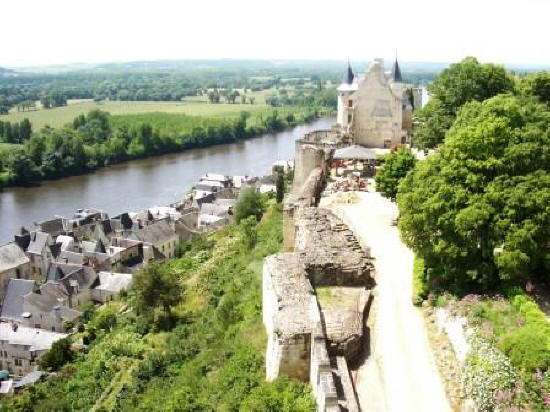
The
fortress extends over 500 metres along the ridge overlooking the
river it is not known what the original construction would have
looked like but we know it was made of three different strongholds
separated by dry moats.
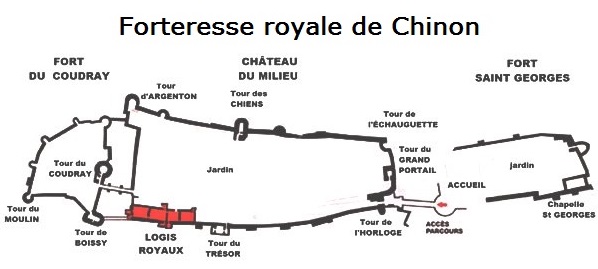
Fort St. George, the earliest construction by Henry II the English
king, thus the name, has all but gone and it is now the site of the
modern visitor centre and entrance to the fortress. Henry had built
this outer fortification to house a garrison to protect what was the
most vulnerable part of the fortress. The fort was connected to the
central part of the complex via a wooden drawbridge, now replaced by
a stone bridge.
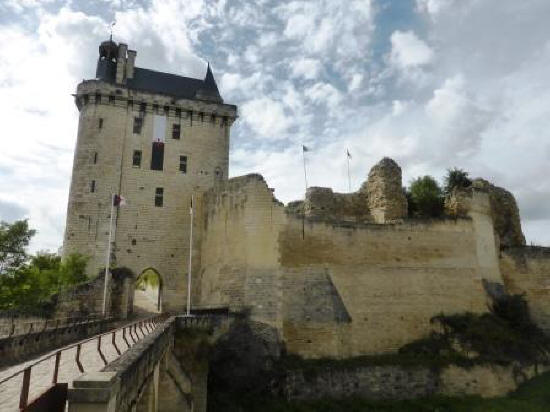
The main feature of the central part
‘Chateau de Milieu’, of the fortress is the ‘Tour de l’Horlage’
(clock tower), standing 35 metres high, it is a dominant feature of
the eastern side of the Chinon skyline. This part of the fortress
also contains the royal lodgings, built originally for the dauphin
Charles. When I first visited Chinon this was
in ruins
but has now been restored as part, I believe, of one of Europe’s
most expensive projects of this kind. For some reason I preferred it
as a ruin as the ‘house in the wall’ I feel, commands less respect.
The new building now contains exhibition space and a history of the
castle(s). Chateau du Milieu also contains the ‘Tour des Chiens’
(the dog’s tower) which once served as home to the pack of royal
hunting dogs plus the Tour d’Argenton built by the then governor of
the chateau back in the 15th century.
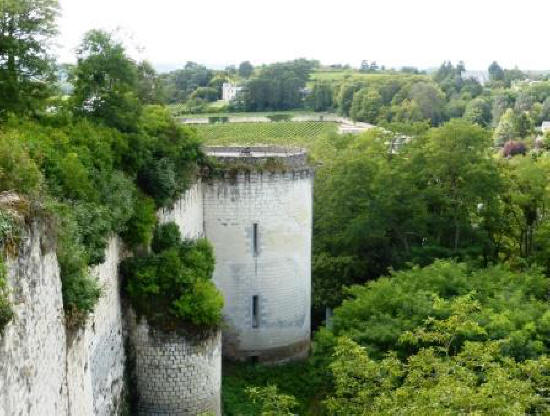
Tour d’Argenton
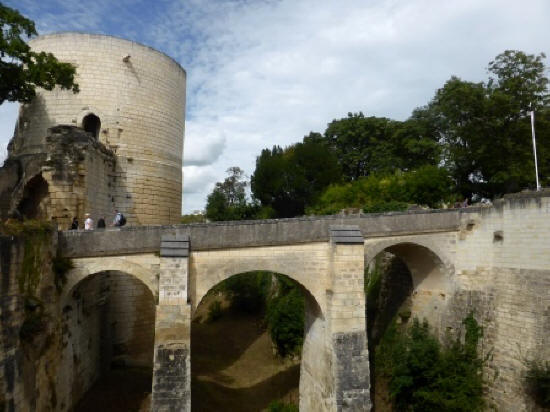
The most
westerly part of the fortress
Fort Coudray contains the 13th century keep or Tower of
Coudray and Tower of Boissy plus
the Tower of Mill, built at the end of the 12th century. The
keep,12metres diameter and 25 metres high, had been added by Philip
Augustus
to
strengthen its military capacity. It has three floors and they have
played there part in history with Joan of Arc being housed in one of
them during her stay at Chinon and as a prison for the Knights
Templar grand masters before being put to death.
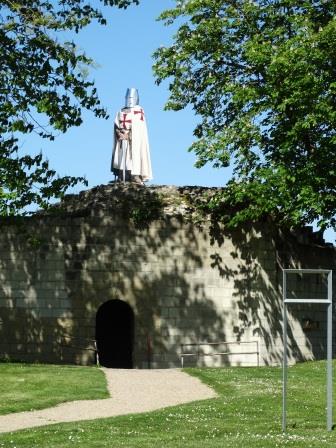
The
great master Jacques of Molay was among those executed
The Tour
du Moulin sits the south-west corner of the fortification and is 20
metres high and 8 metres in diameter. Its position, sitting high
above Vienne river valley made it almost impregnable.
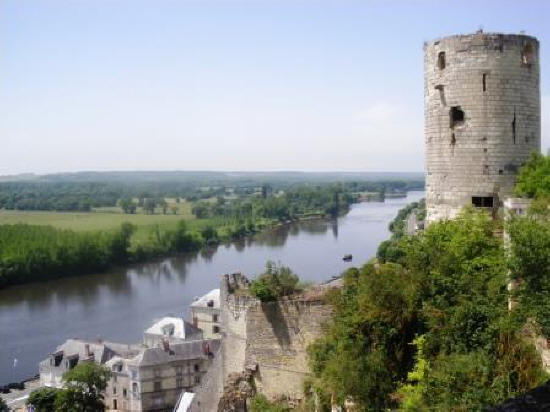
Tour de
Boissy sits on the southeast corner of this part of the fortress
overlooking the town. It sits thirty meters high but unlike the
other towers is more rectangular in shape.
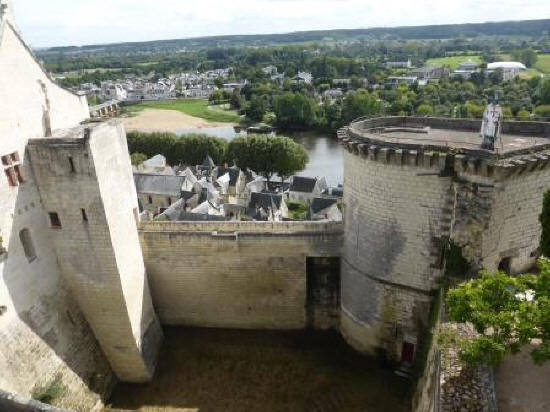
From the many towers of the fortress you can get exceptional views
of the surrounding countryside and the Vienne river valley.
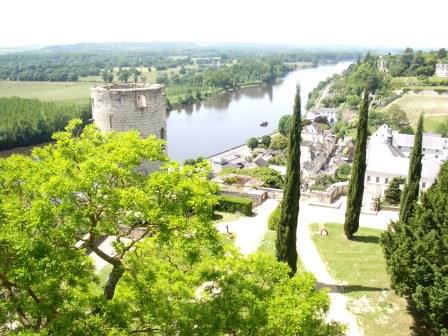
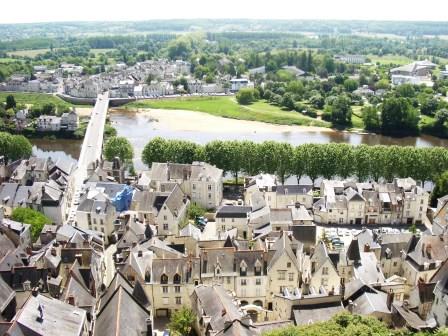
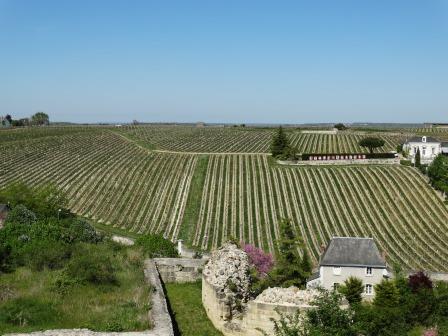
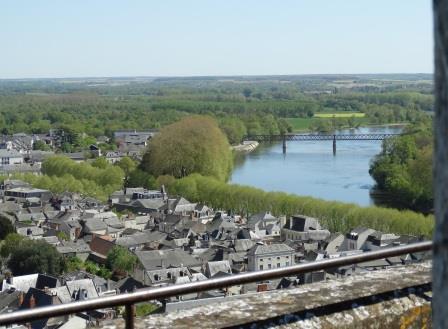
OPENING TIMES
January -
February and November - December: 9.30am - 5pm
March - April
and September - October: 9.30am - 6pm
1st May - 31st
August: 9.30am - 7pm
Last admission
30 minutes before closing.
ENTRY
PRICES
Full
price: €10.50 Children 7-18 years
€8.50
(under 7 free)
External links:
Official website
Chateau de Chinon on Wikipedia